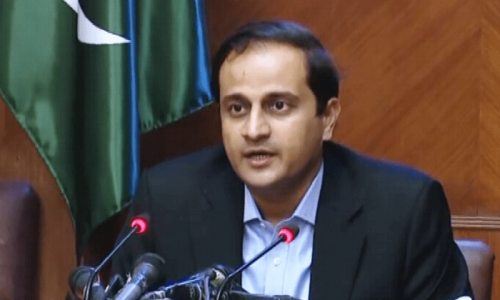KARACHI: Brain cells ability to connect with a silicon chip has raised prospects for use of neurochip implants to operate artificial limbs, restore impaired vision and repair a wide range of brain functions affected by neurological disorders including stroke, Parkinson’s and Alzheimer’s diseases.
This was one of the key points shared by scientist Prof Naweed I. Syed while giving a presentation at the Aga Khan University Hospital auditorium on Tuesday.
Currently working at Cell Biology and Anatomy Department of the University of Calgary, Canada, Dr Syed is the first scientist to connect brain cells to a silicon chip and has recently been awarded Tamgha-i-Imtiaz by Pakistan government for his discovery.
His presentation titled Brain-machine hybrids: exploring new frontiers focused on his discovery and its future prospects. “Brain is the fastest growing organ in human body and small changes can affect its development. It is important to understand the various stages of brain development from before birth to adulthood [to develop a computer-brain interface],” he said.
With the help of slides, he explained how a brain cell grew and formed a network. “But the dilemma is that the brain is not just a structural entity but also a functional unit and exhibits a high form of plasticity,” he said, adding that plasticity (the brain’s ability to change throughout life) allowed scientists to attach human brains with electronic devices.
He said the damaged part of brain could be bypassed and lost (brain) connections could be restored with the help of such devices.
At a later stage of research, he noted, personalized drugs targeting an individual problem could be developed.
He also talked about mind-controlled devices and showed a glimpse of a mind-controlled flying drone that used a system to identify electrical activity associated with particular thoughts and translating imaginary motion signals into commands that computers send to the drones.
“Time is also not far when implantable medical devices designed to alert users about a potential seizure, heart attack or sudden sciatic attack will become a reality,” he observed.
Highlighting the need for innovative strategies, he said in the case of neurological problems, there was no alternative but to have a paradigm shift and use electronic devices to fix them. “This will help us find solutions to many problems. Our future is in very good hands,” he concluded, while giving credit to the entire team back in Canada for the discovery.
In reply to a question about using the technology to help treat people with autism, he said: “All great people who changed the world were autistic. We need to change our people towards them and have enrichment strategies to improve their lives.”
About bioethical concerns, he said scientists would follow guidelines when they reached the stage of implanting neurochips in human brain.
Published in Dawn, September 7th, 2016














































Dear visitor, the comments section is undergoing an overhaul and will return soon.